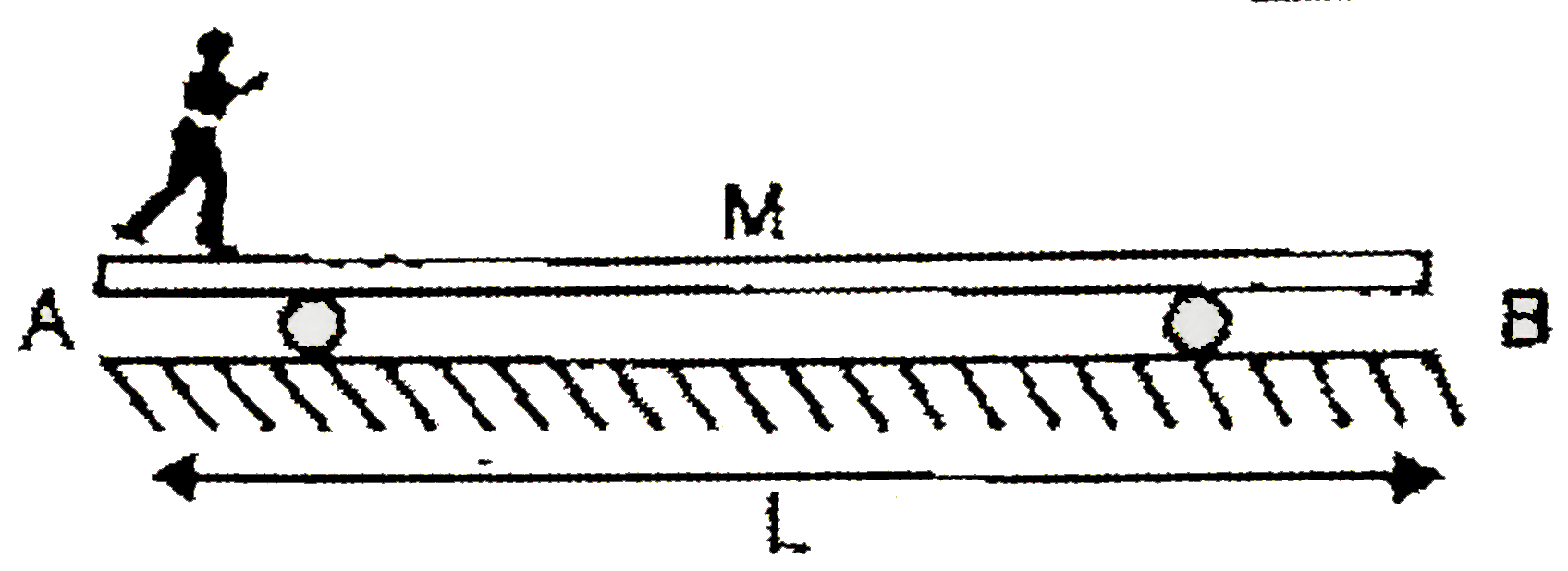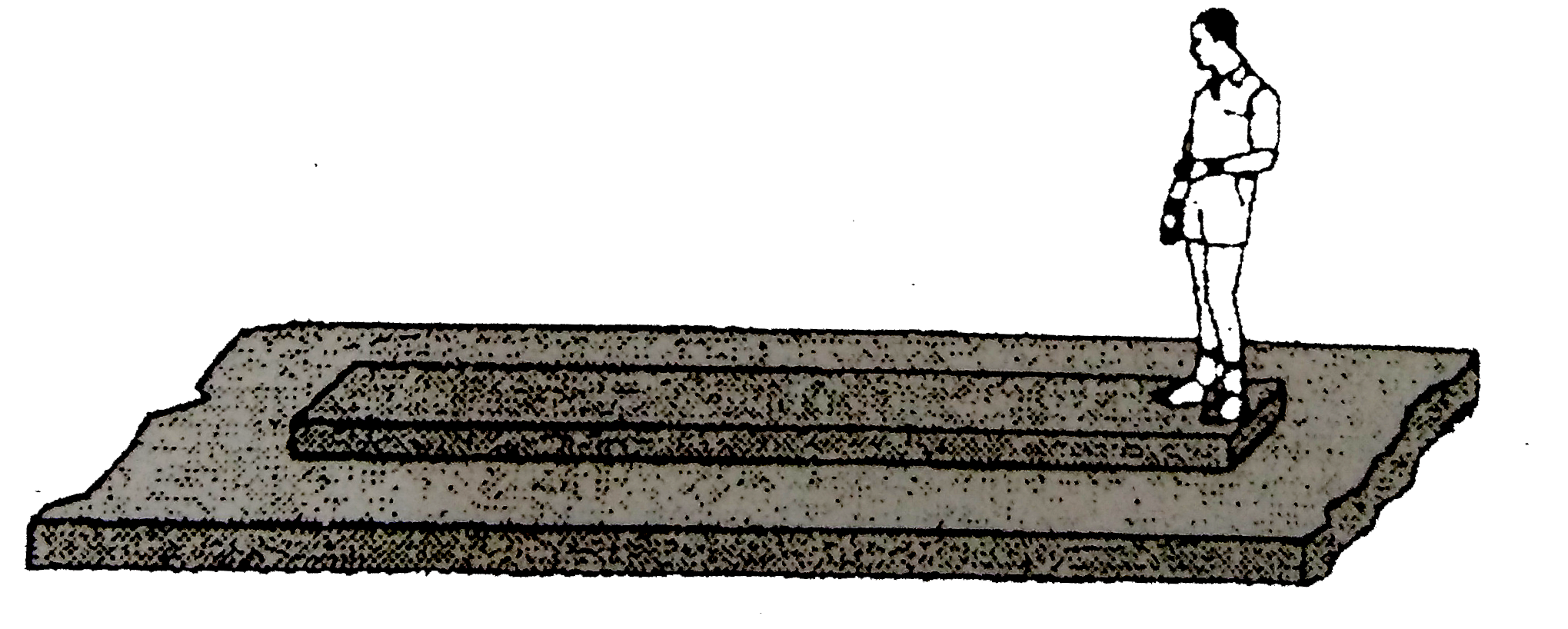A man of mass m, standing at the bottom of the staircase of height L climbs it and stands at its top.
Work done by all forces on man is equal to the rise in potential energy mgL.
Work done by all forces on man is zero
Work done by the gravitational force on man is mgL
The reaction force from a step does not do work because the point of application of the force does not move while the force exists.
The correct Answer is:B, D
When a man of mass m climbs up the staircase of height L, work done by the gravitation force on man is (−)mgL, and work done by muscular force is mgL. If we ignore air resistance and friction, then the work done by all forces on man is equal to −mgL+mgL=zer⊙Further , reaction force from a step does not do work because the point of application of force does not move while the force exists.
Topper's Solved these Questions
- WORK, ENERGY AND POWERBOOK - PRADEEPCHAPTER - WORK, ENERGY AND POWEREXERCISE - JEE (Main and Advanced)
82 Videos
- WORK, ENERGY AND POWERBOOK - PRADEEPCHAPTER - WORK, ENERGY AND POWEREXERCISE - Comprehension
9 Videos
- WORK, ENERGY AND POWERBOOK - PRADEEPCHAPTER - WORK, ENERGY AND POWEREXERCISE - Problems For Practice
76 Videos
- THERMODYNAMICSBOOK - PRADEEPCHAPTER - THERMODYNAMICSEXERCISE - Assertion- Reason Type Questions
19 Videos
Similar Questions
A man and his wife is standing at the door.
View SolutionA man wants to climb to the top of a vertical pole height 11m. He climbs 5m in 2s and then slips 3m in 2s. This process repeats. Plot x−t graph of the motion of the man. Find the time taken by the man to reach the top of the pole and total distance covered by man.
View Solution
Knowledge Check
A man of mass M stands at one end of a plank of length L which lies at rest on a frictionless surface. The man walks to the other end of the planck. If the mass of the planck is M2, then the distance that the man moves relative to the ground is
A3L4BL4C4L5DL3A man of mass M stands at one end of a stationary plank of length L, lying on a smooth surface. The man walks to the other end of the plank. If the mass of the plank is M/3, the distance that the man moves relative to the ground is
A3L4BL4C4L5DL3A man of mass M stands at one end of a plank of length L Which lies at rest on a frictionless surface . The man walks to the other end of the plank. If the mass of the plank is 3M, the distance that the man moves relative to the ground is
AL4B3L4C2L3DL3
A man of mass m is standing at one end of a trolley of mass M and length L placed at rest on a smooth horizontal surface. The man starts moving towards the other end and covers distance L, then distance moved by man w.r.t ground is
View SolutionThe figure shows a man of mass m standing at the end A of a trolley of maas M placed at rest on a smooth horizontal surface. The man starts moving towards the end B with a velocity urel with respect to the trolley. The length of the trolley is L.

As the man walks on the trolley, the centre of mass of the system (man+ trolley) :
View SolutionNo external force: Stationery mass relative to an inertial frame remains at rest
A man of mass m is standing at one end of of a plank of mass M. The length of the plank is L and it rests on a frictionless horizontal ground. The man walks to the other end of the plank. Find displacement of the plank and man relative to the ground.

View SolutionA block of mass m is released from the top of a mooth inclined plane of height h its speed at the bottom of the plane is proportion to
View SolutionA man of mass m stands at the left end of a uniform plank of length L and mass M, which lies on a frictionaless surface of ice. If the man walks to the other end of the plank, then by what distance does the plank slide on the ice?
View Solution
